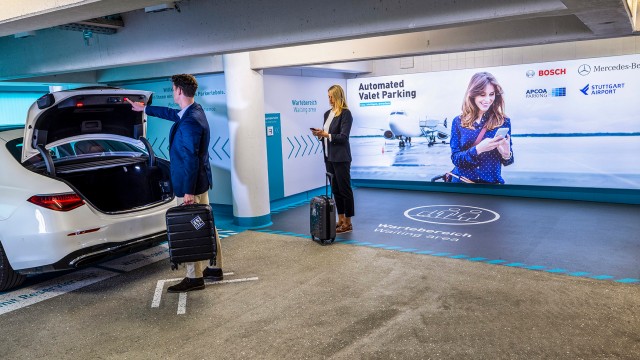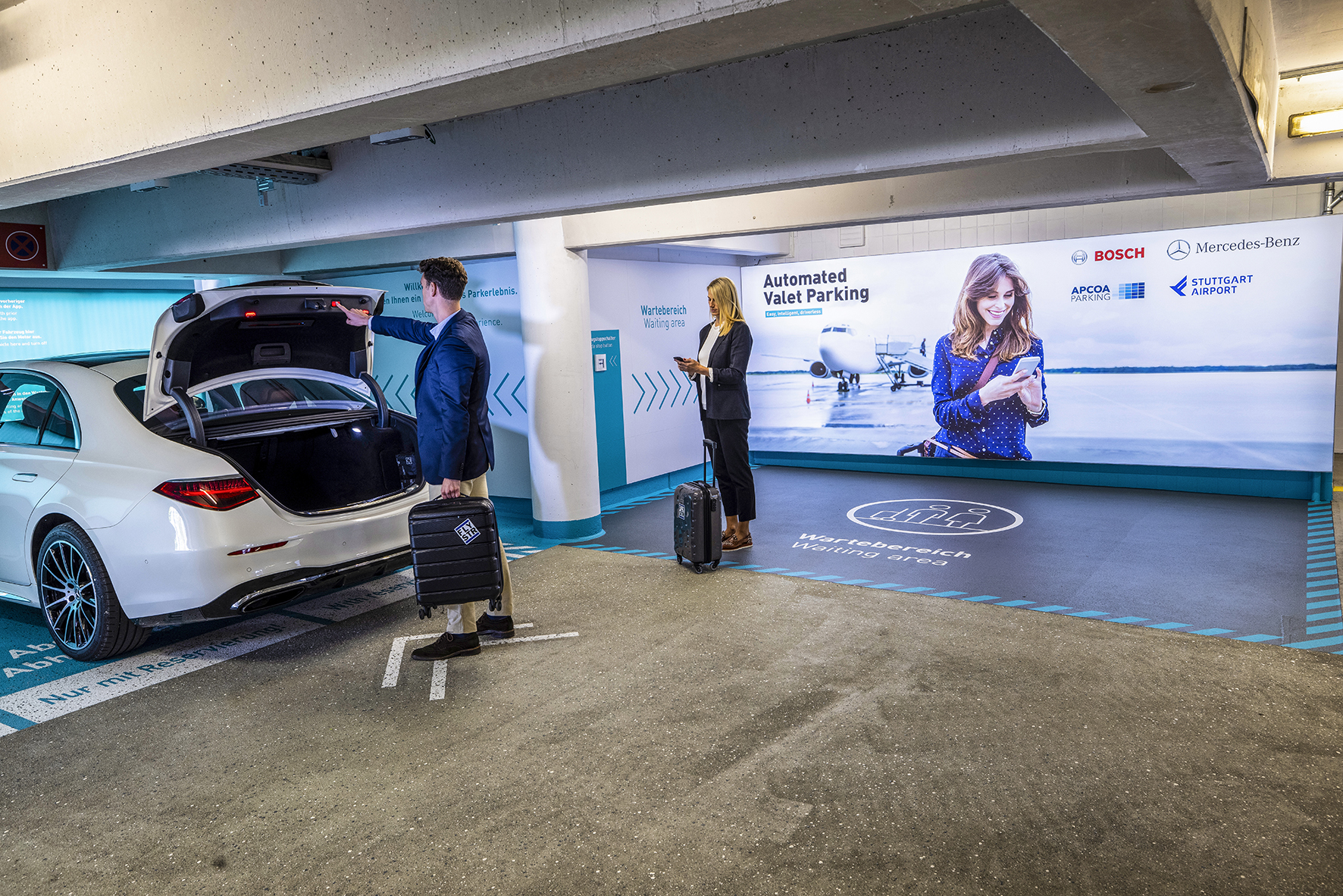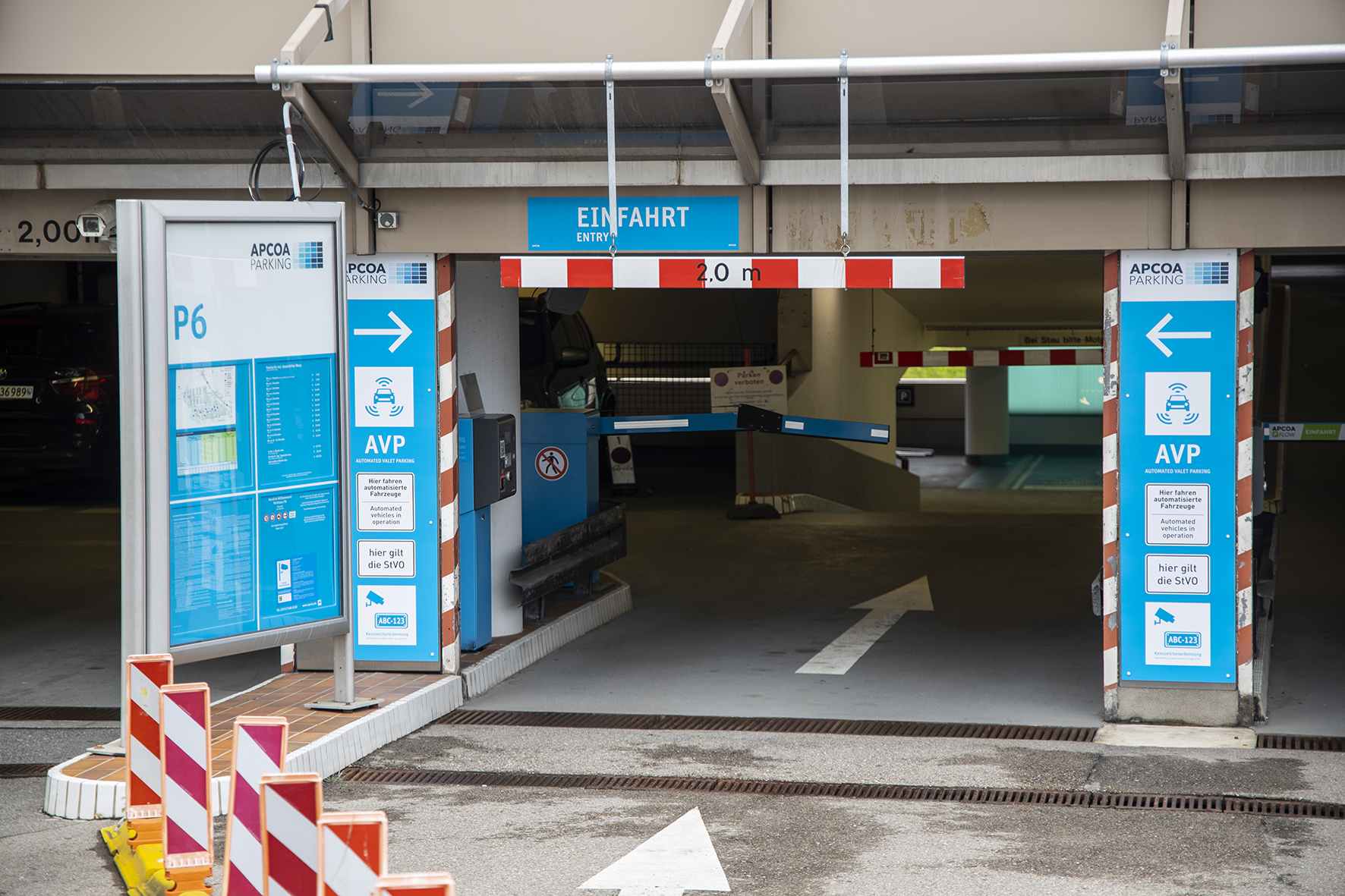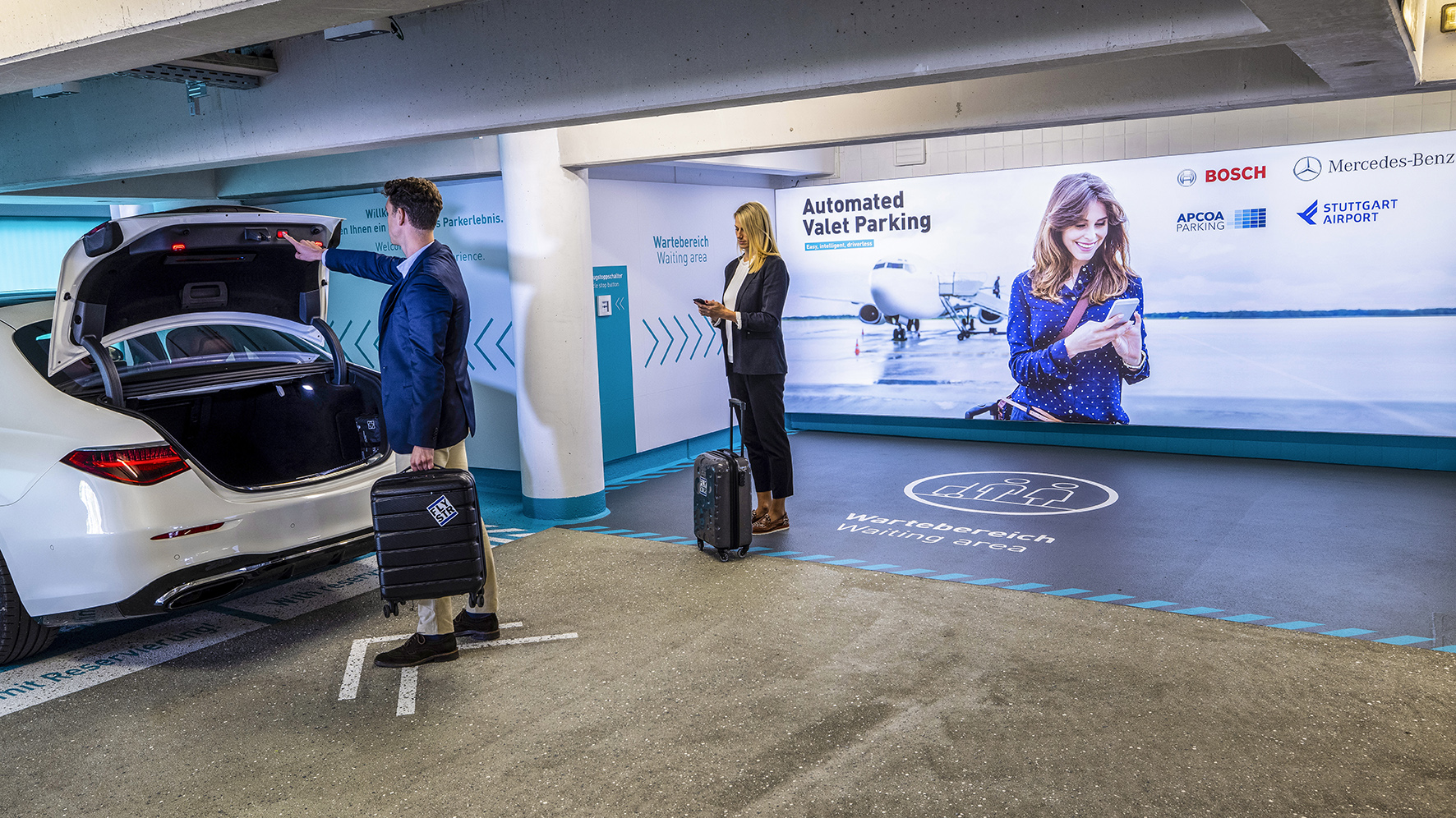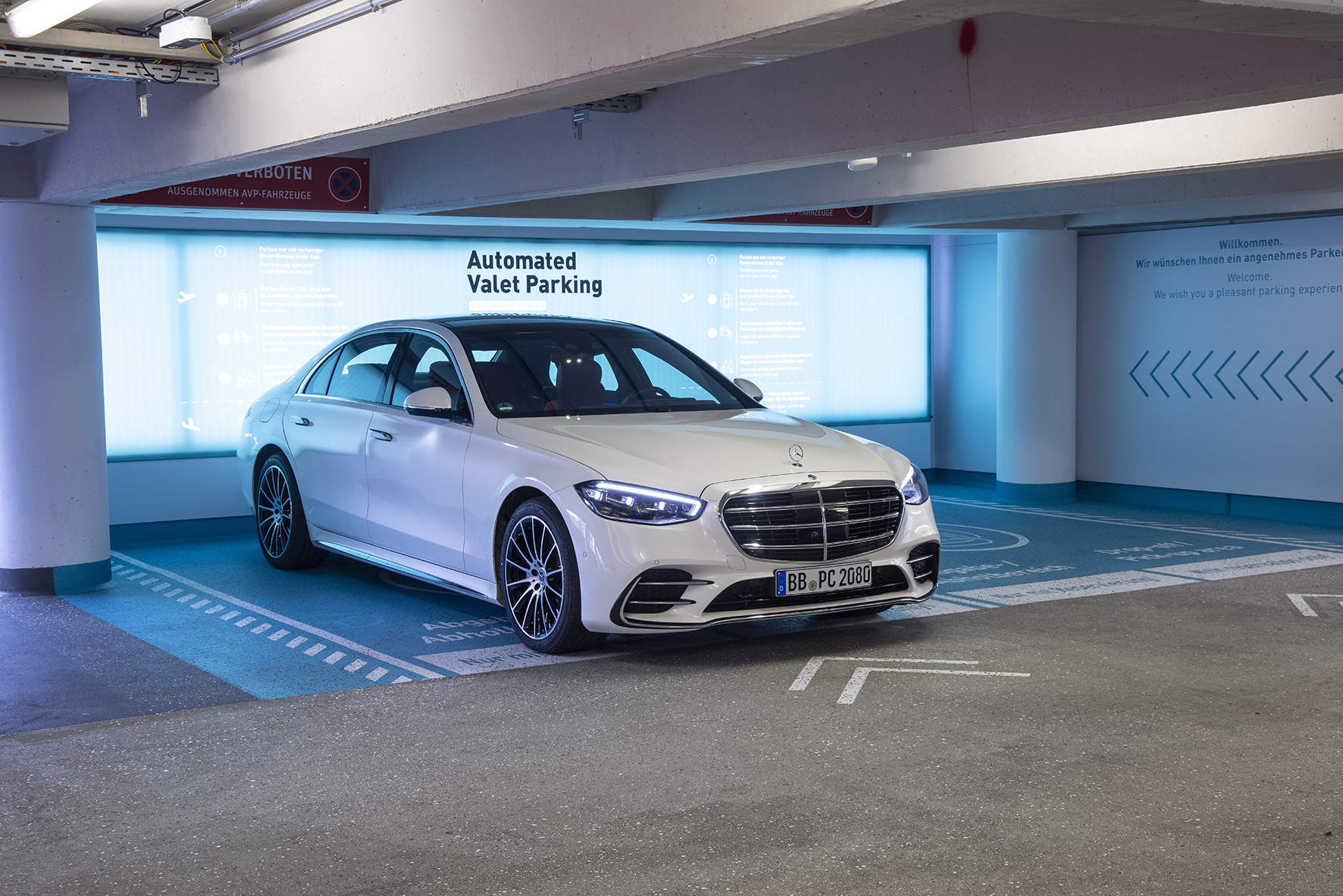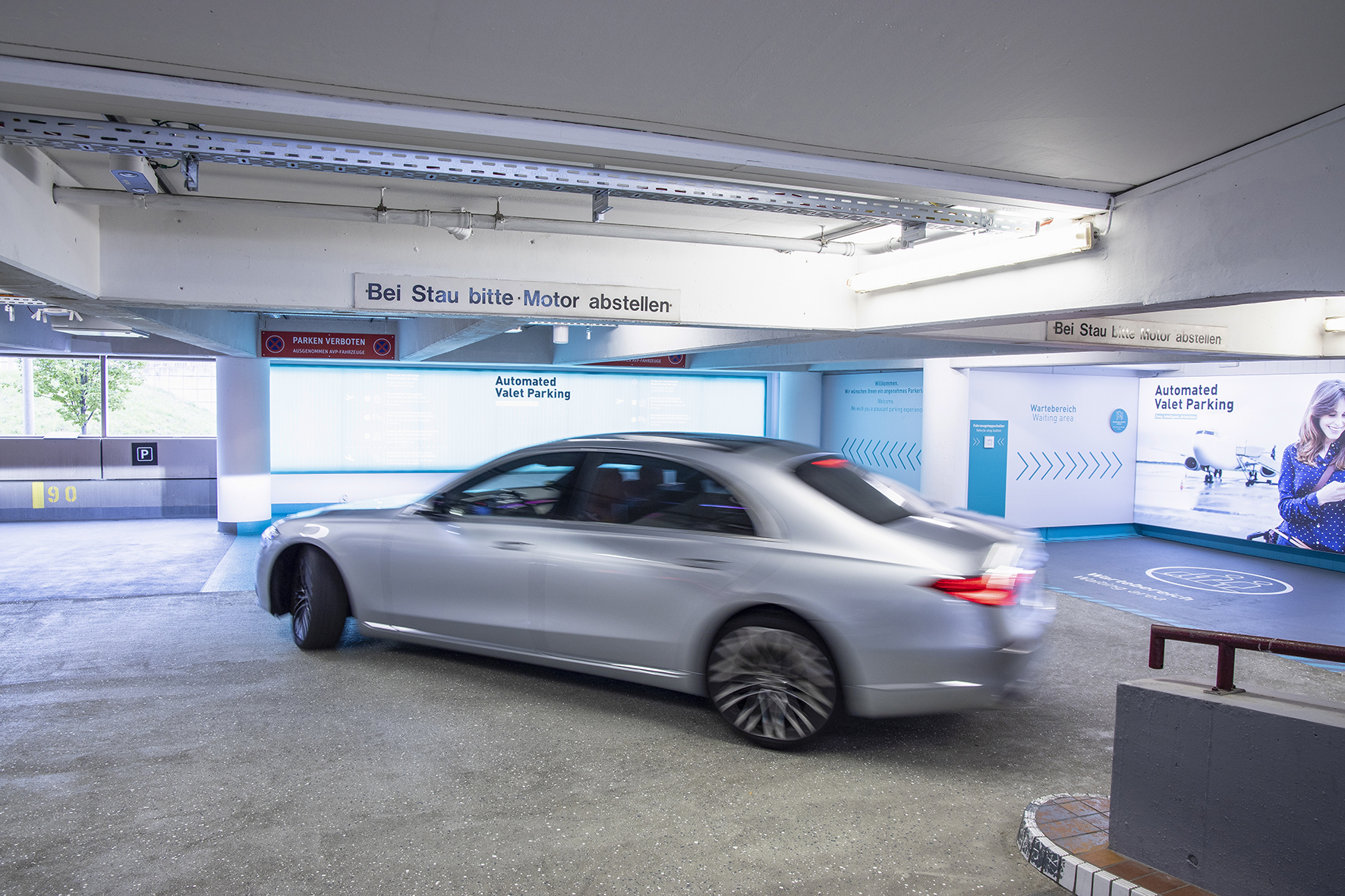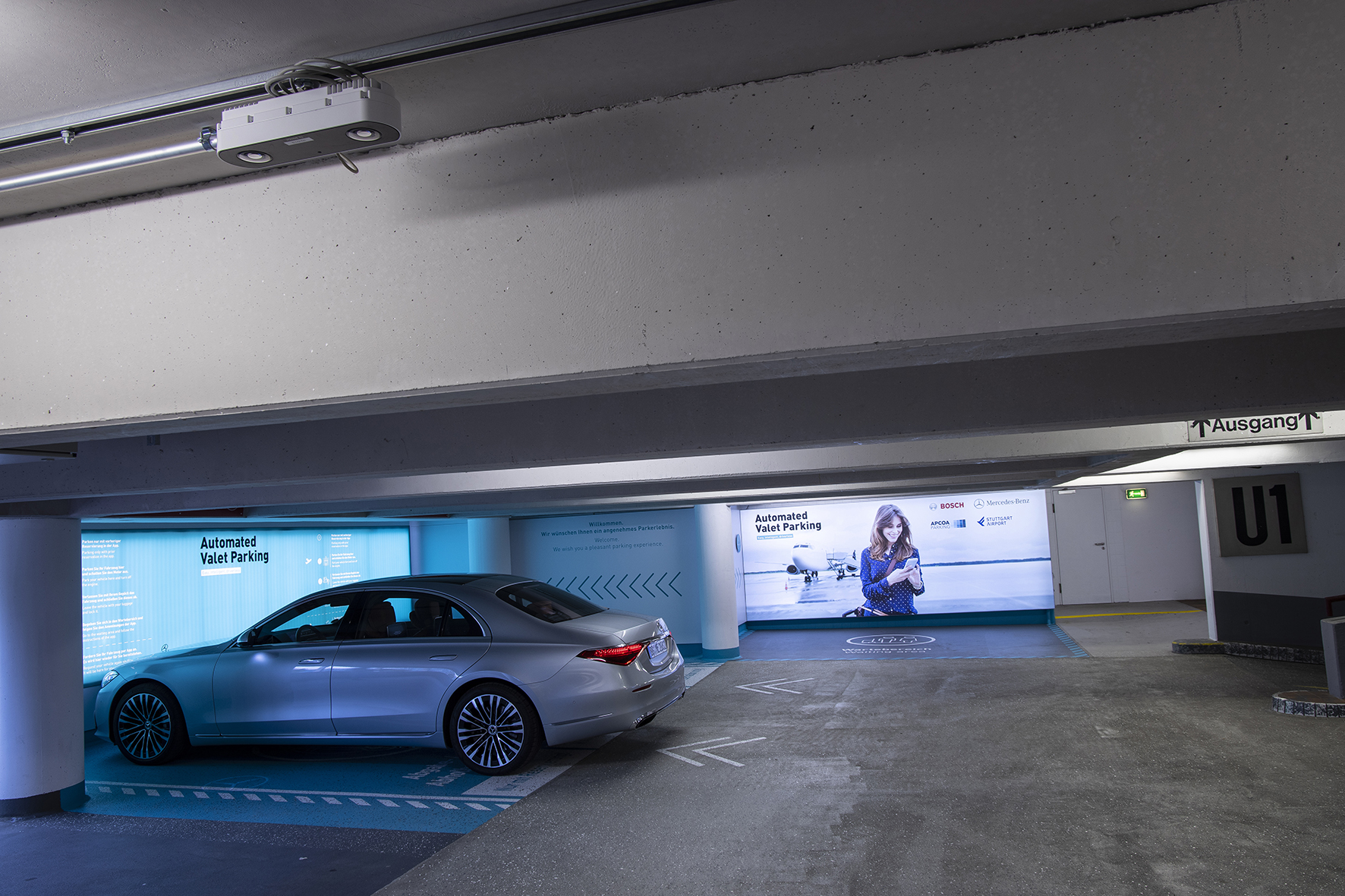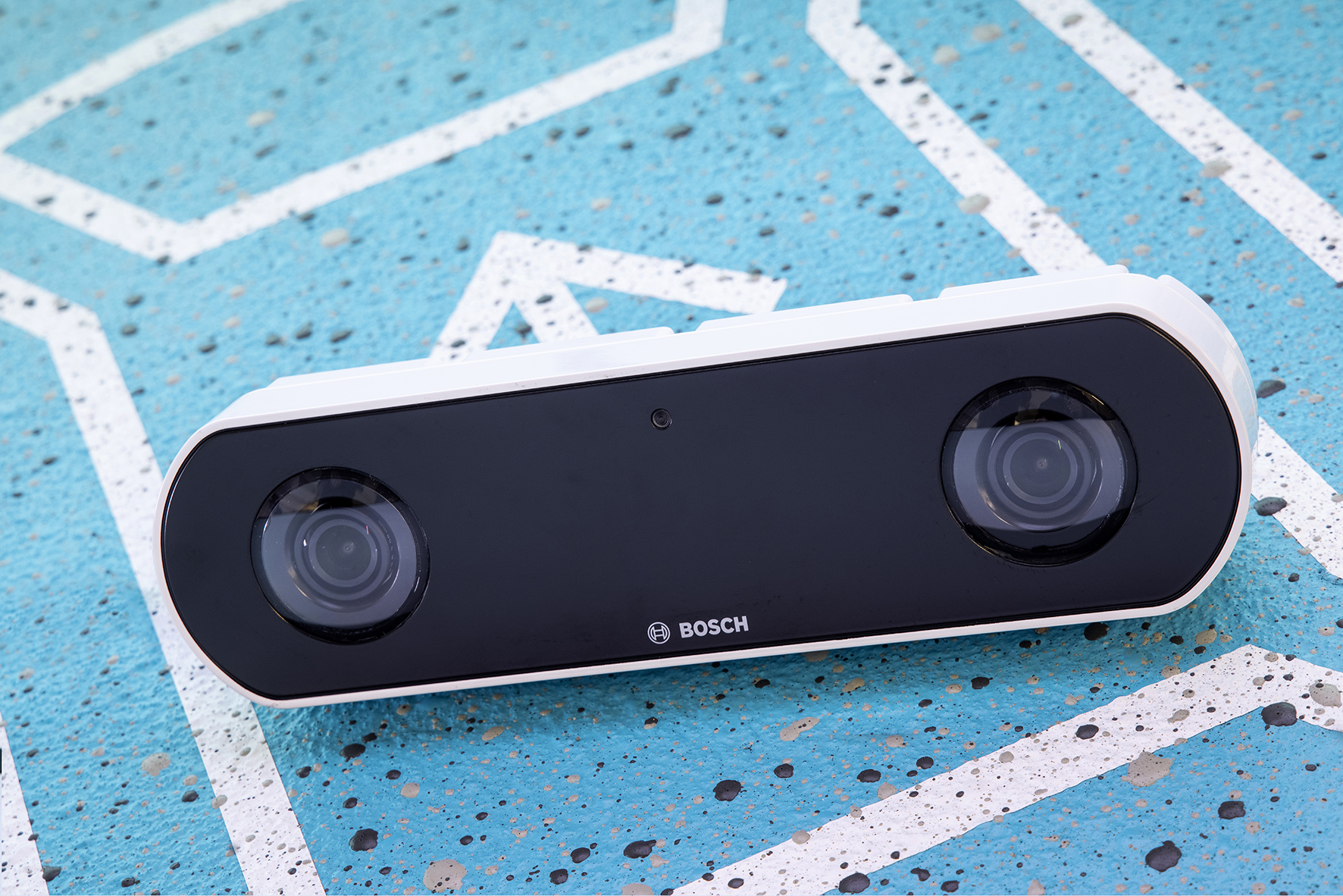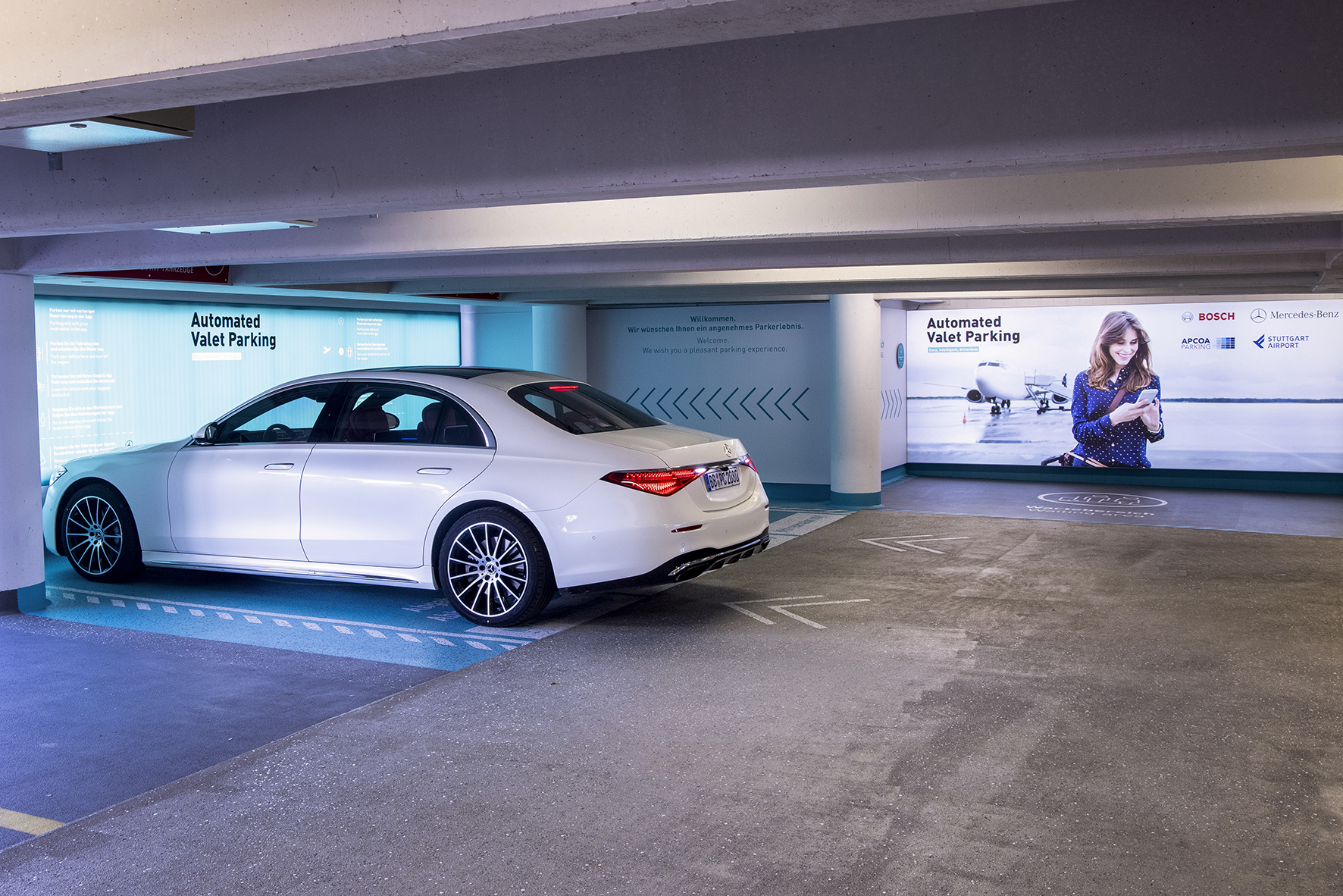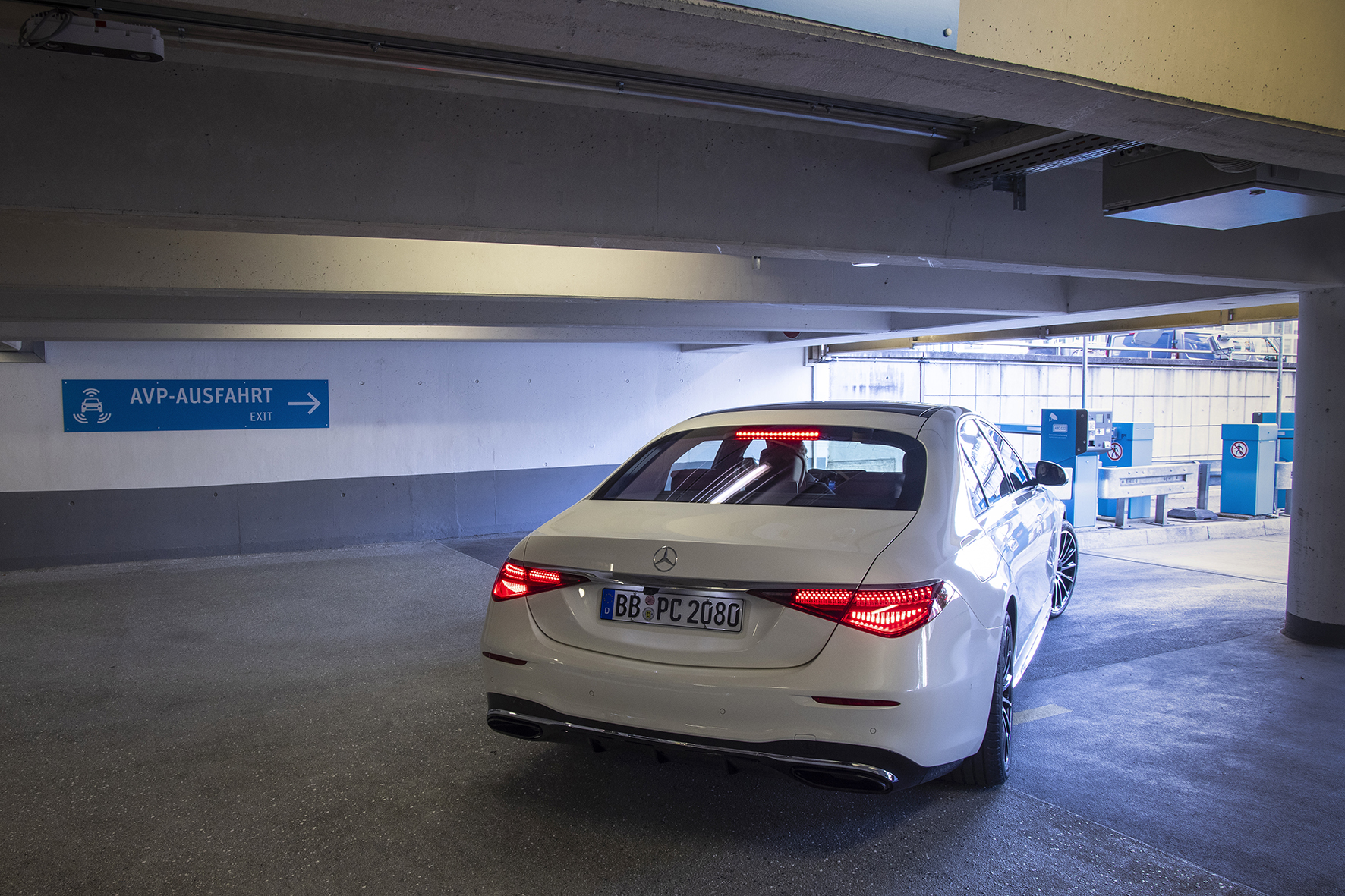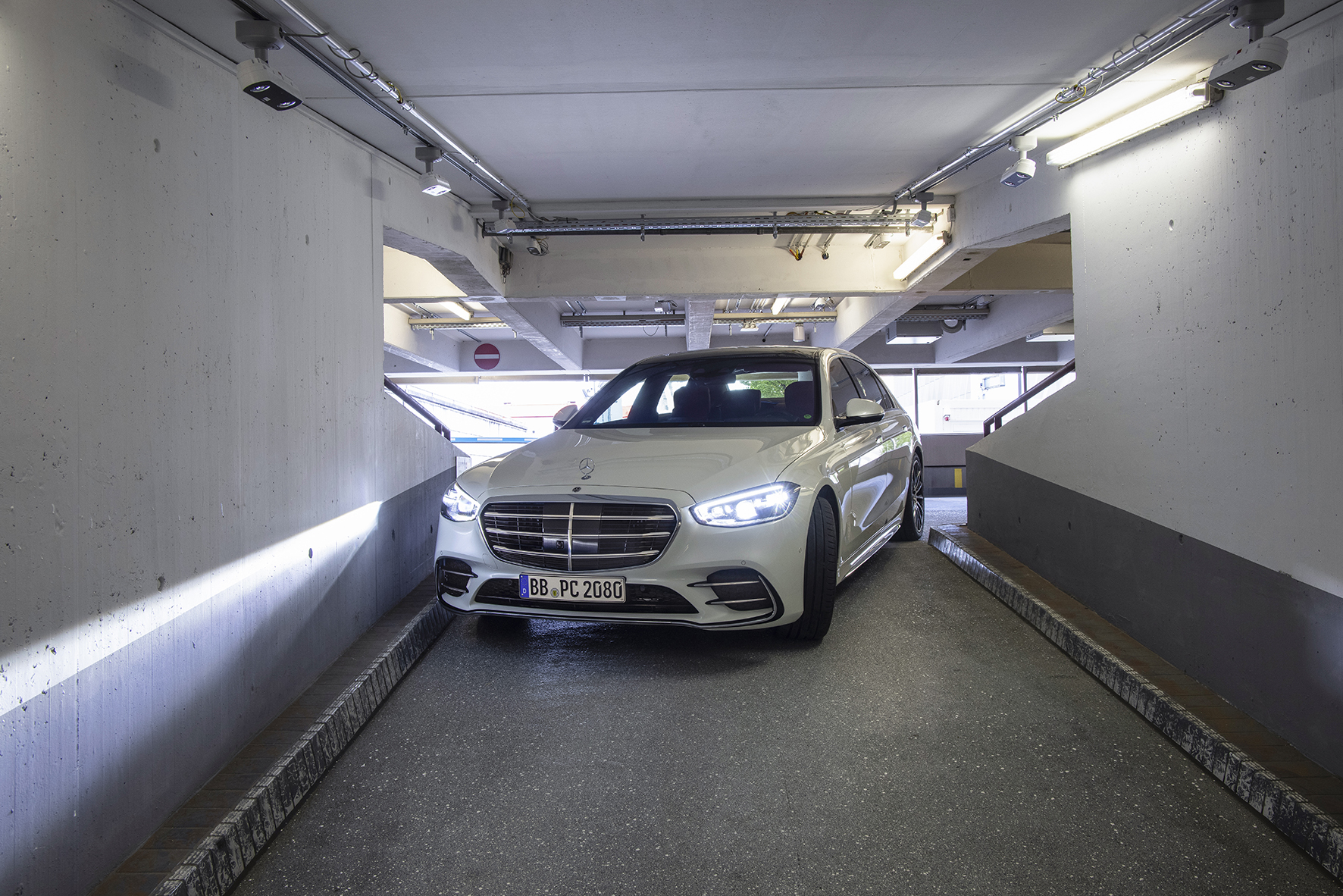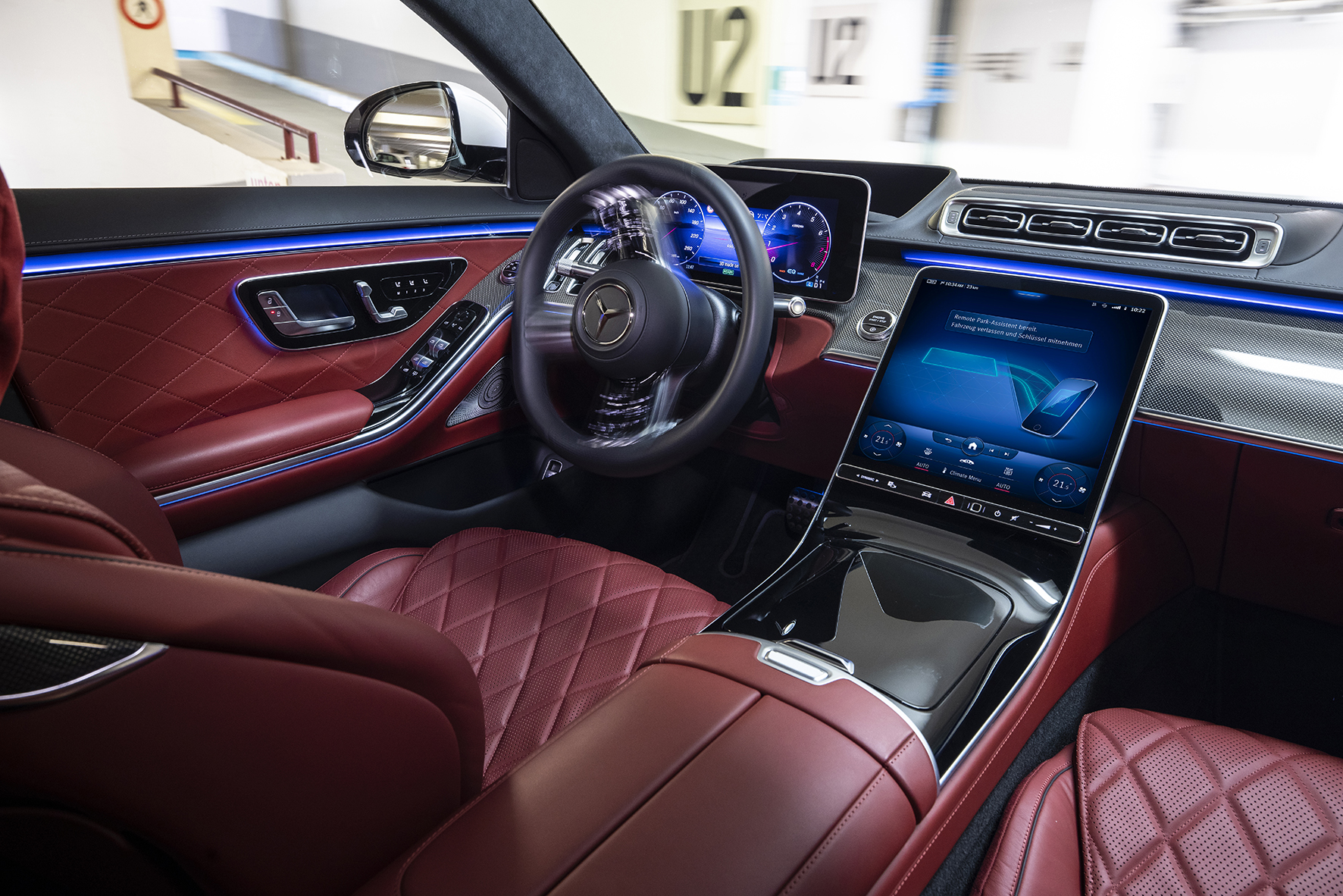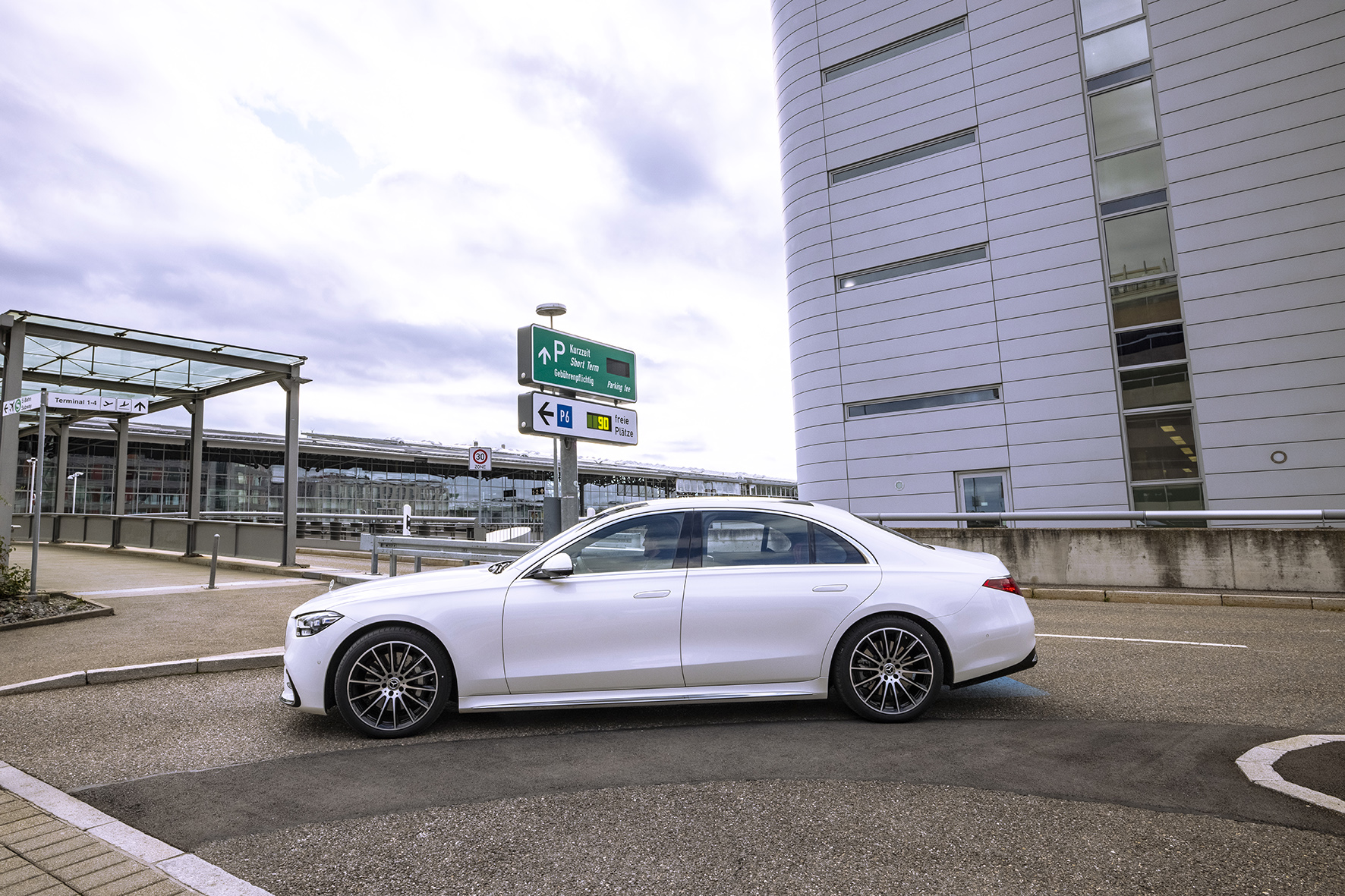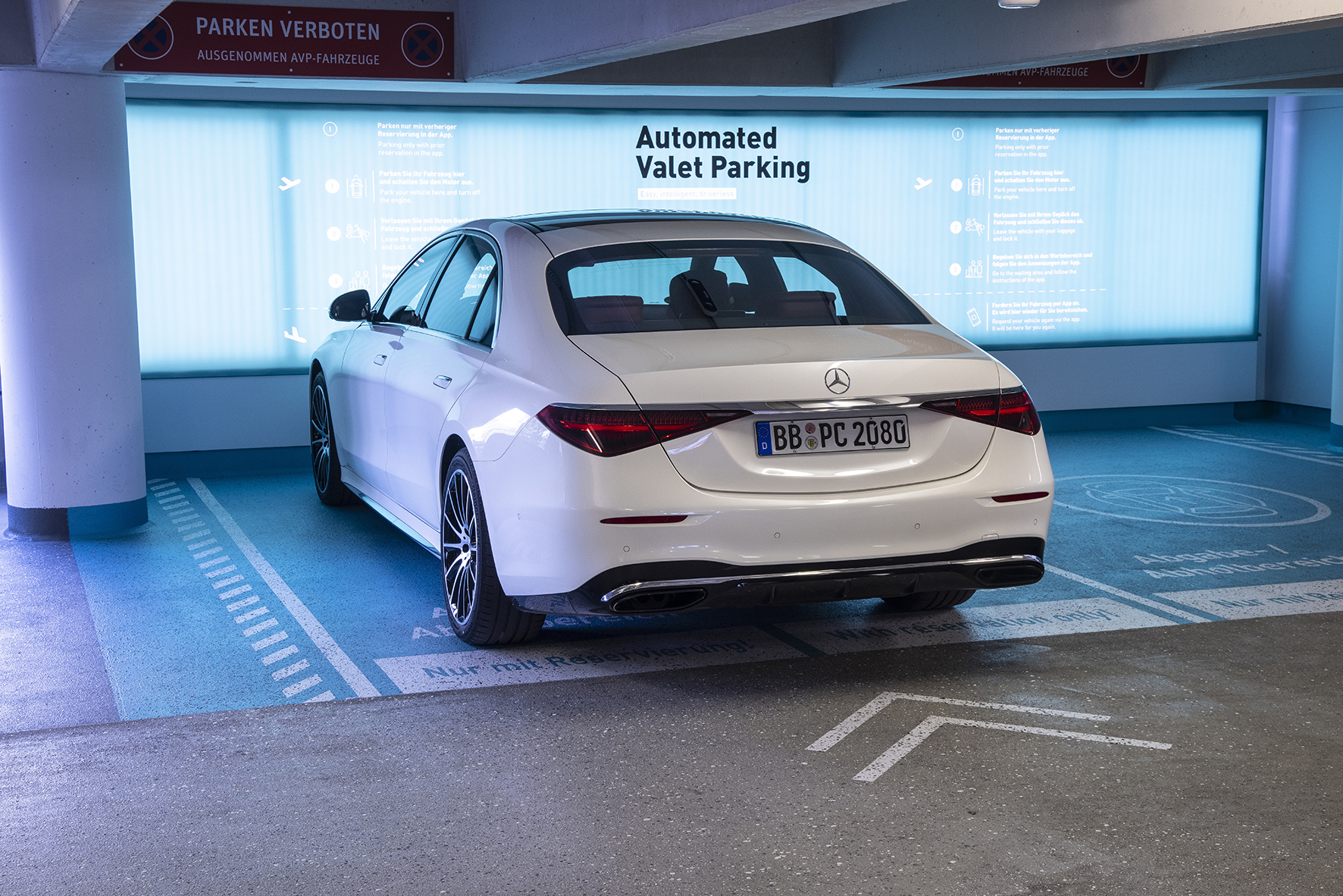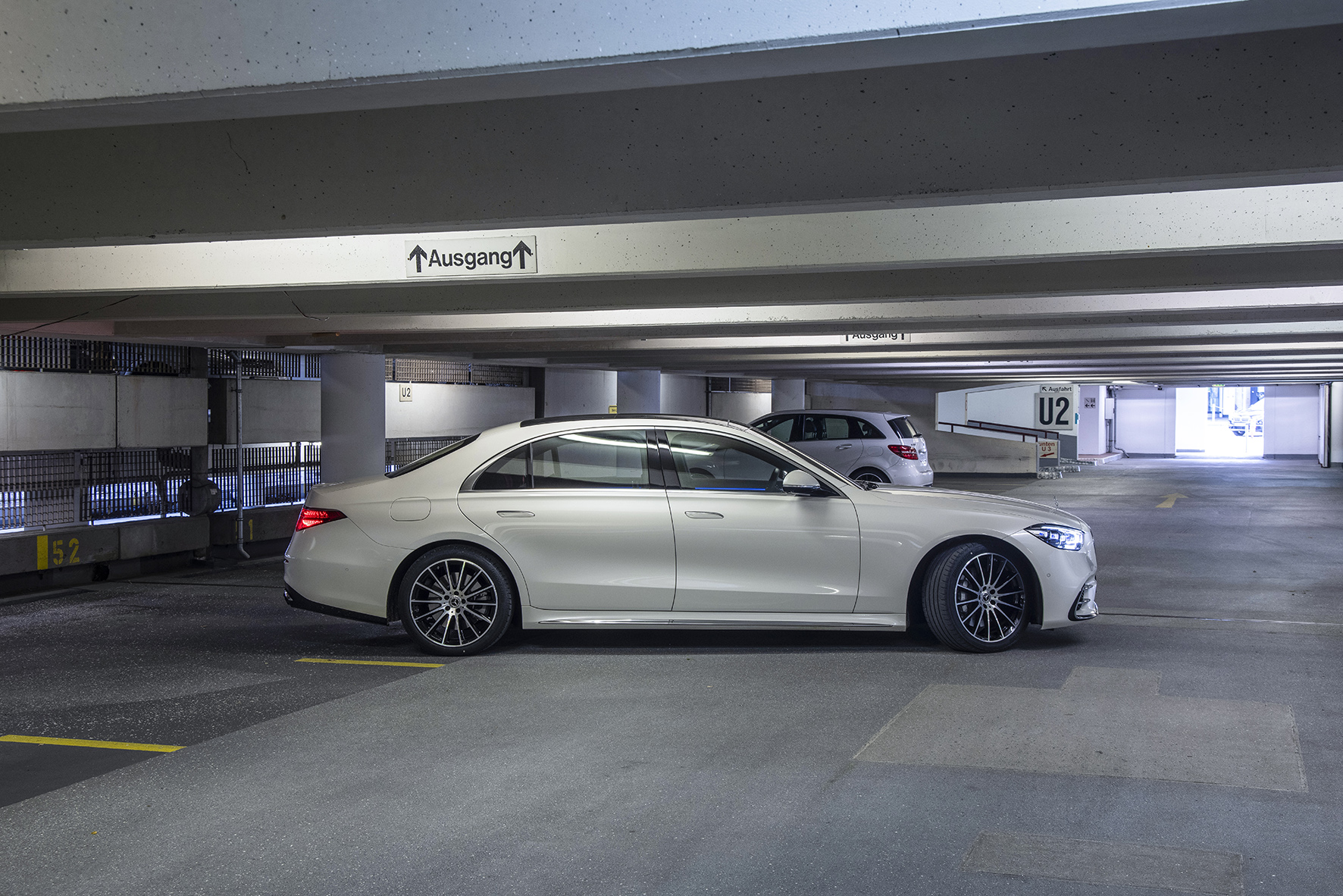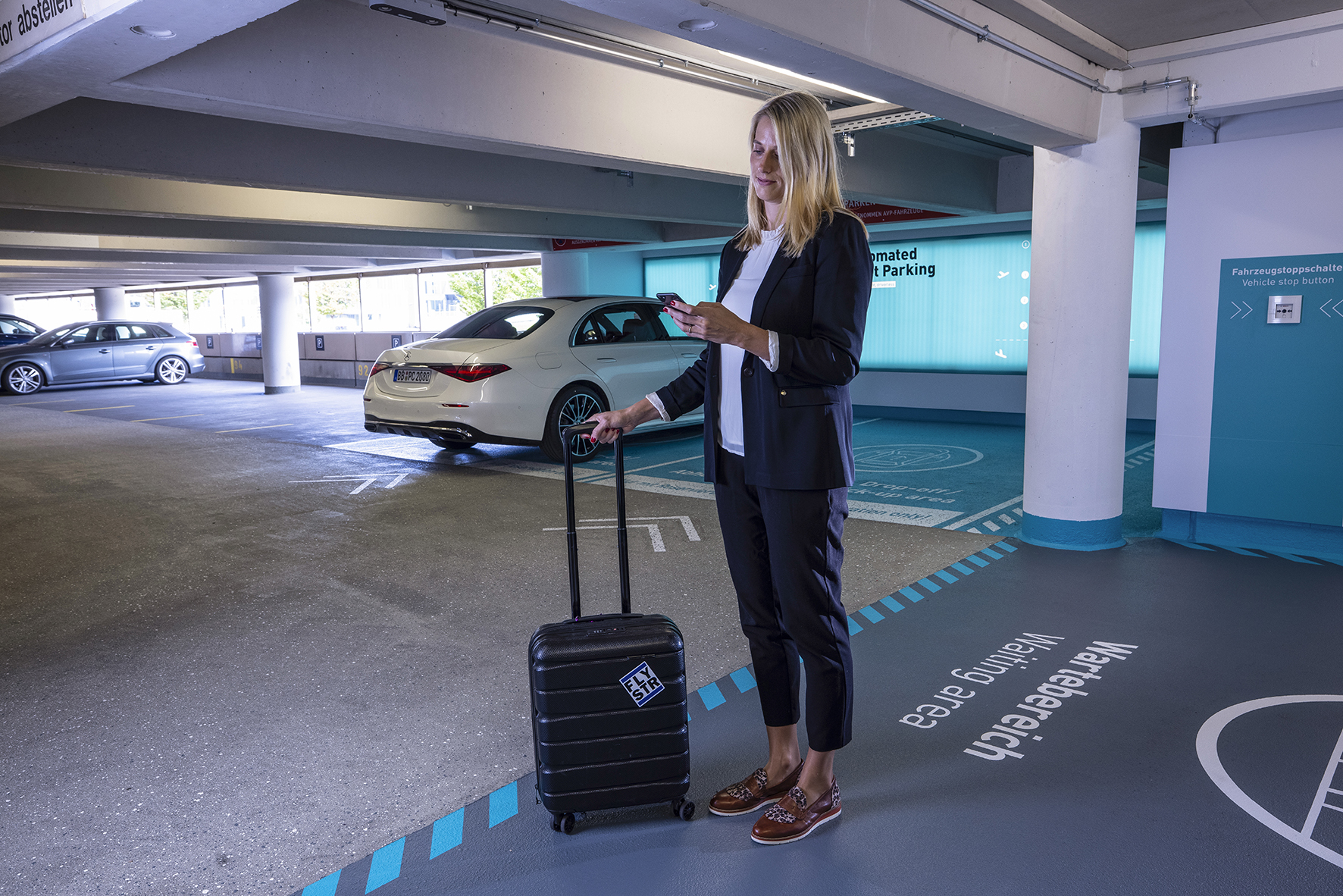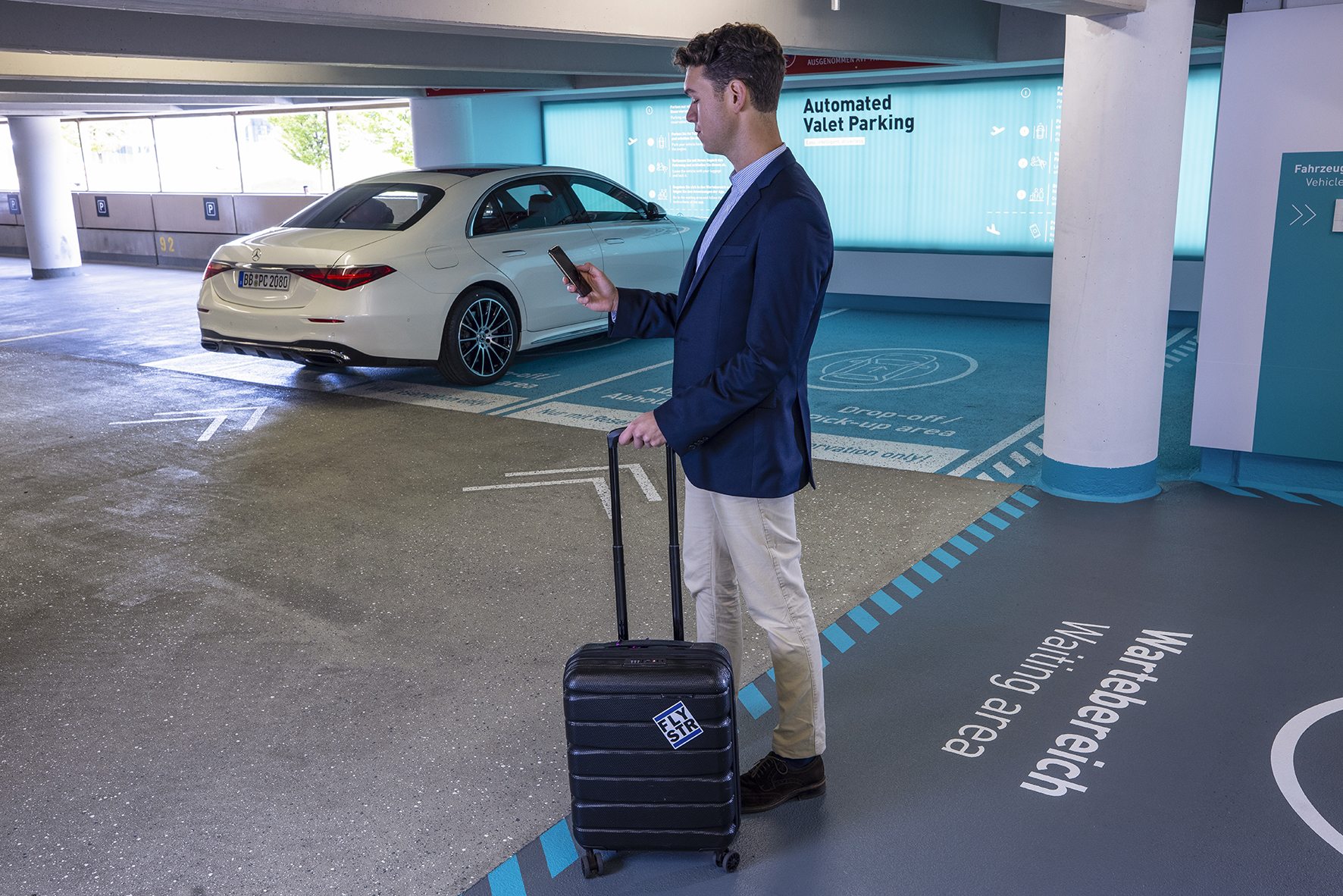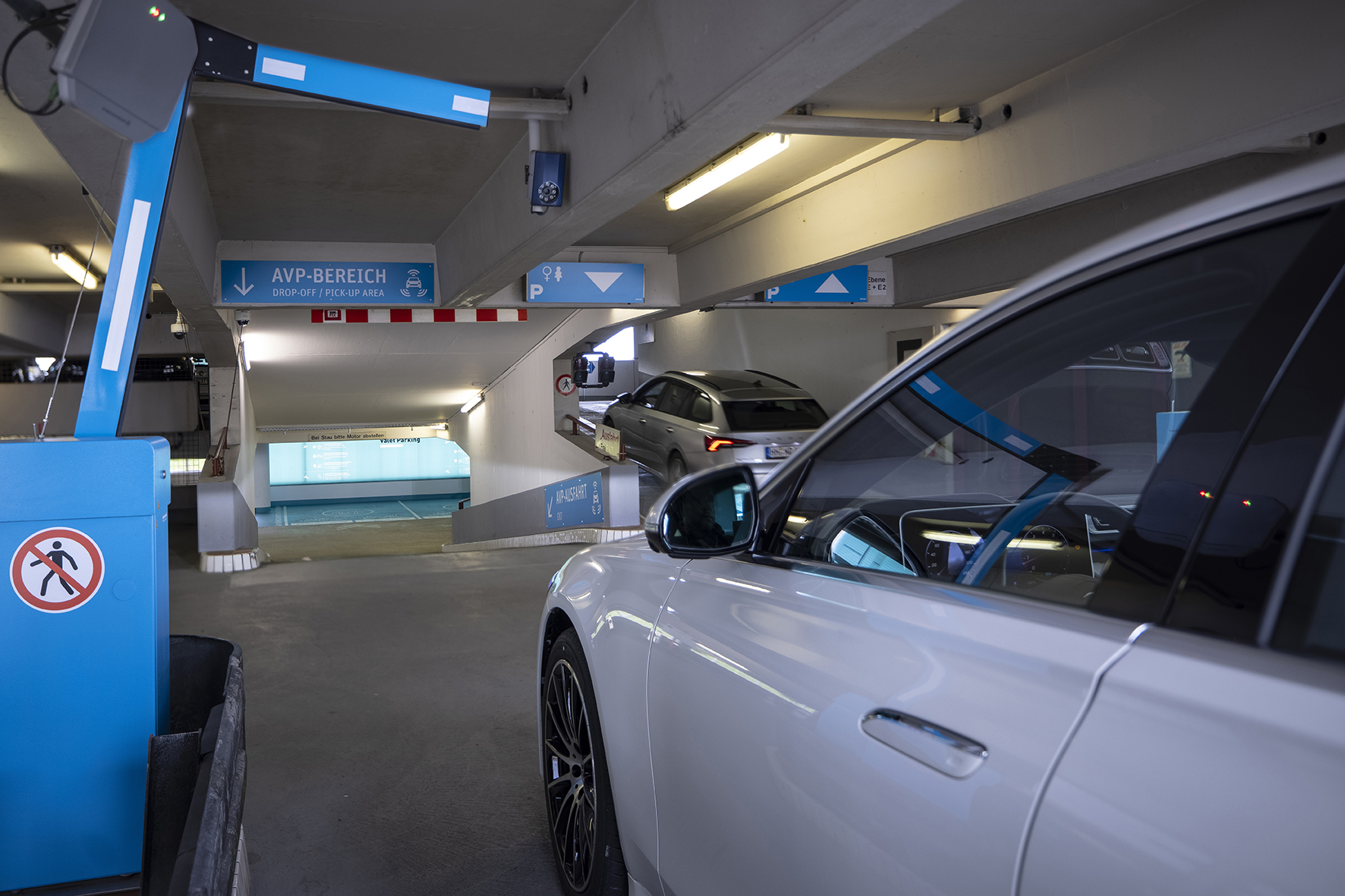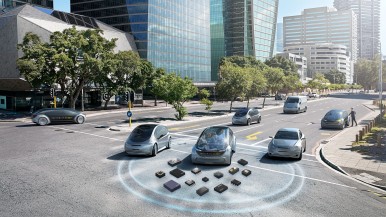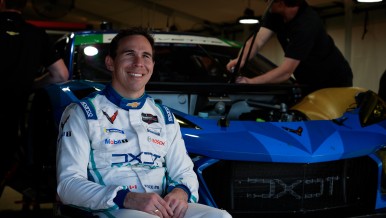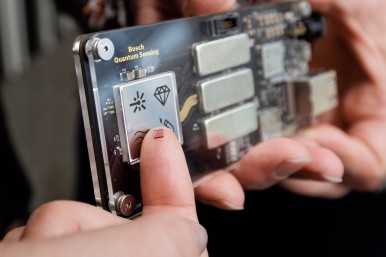Stuttgart, Germany – Automated parking to drive down the airport stress: Bosch, Mercedes-Benz, and the parking garage operator Apcoa want to introduce driverless and fully automated parking at Stuttgart airport in the future. To this end, the automated valet parking system co-developed by Bosch and Mercedes-Benz is to be made ready for commercial operation. The new Mercedes-Benz S-Class is already geared up to accommodate it as the world’s first production vehicle to feature the technology required for future infrastructure-based automated valet parking. As an option, customers can buy the appropriate pre-installation for what the company calls the INTELLIGENT PARK PILOT, which makes the S-Class capable of receiving a smartphone command to drive itself to a reserved parking space. “With the new S-Class, it’s not just driving that’s a luxury, but parking as well,” says Dr. Michael Hafner, head of automated driving at Mercedes-Benz AG. The P6 parking garage at Stuttgart airport will serve as the pilot for the planned commercial automated parking service. Here, the companies will test how the vehicle technology onboard the S-Class interacts with the intelligent Bosch infrastructure and APCOA FLOW, the digital platform provided by the parking garage operator Apcoa. This platform makes the whole parking process ticketless and cashless. “Apcoa, Bosch, Mercedes-Benz, and Stuttgart airport want to work together to make parking fully automatic,” says Christoph Hartung, member of the executive management of Connected Mobility Solutions at Bosch. In the airport parking garage, preparations are currently underway to begin piloting the planned automated valet parking service. The aim of this trial with new S-Class vehicles at Stuttgart airport is to ensure that interactions between the vehicle, infrastructure technology, and parking garage operator run smoothly and are optimized for the customer.
World first: Bosch and Daimler obtain approval for driverless parking without human oversight
Bosch and Daimler demonstrate driverless parking in real-life conditions
Contact persons for press inquiries:
Bosch – Annett Fischer,
Phone: +49 711 811-6286, Twitter: @Annett__Fischer
Apcoa – Sebastian Merkle,
Phone: +49 711 94791-652, Email: sebastian.merkle@apcoa.eu
Mercedes-Benz – Bernhard Wardin,
Phone: +49 176 309 25108, Email: bernhard.wardin@daimler.com
Flughafen Stuttgart – Johannes Schumm,
Phone: +49 711 948-3753, Email: schumm@stuttgart-airport.com
Mobility Solutions is the largest Bosch Group business sector. It generated sales of 42.1 billion euros in 2020, and thus contributed 59 percent of total sales from operations. This makes the Bosch Group one of the leading automotive suppliers. The Mobility Solutions business sector pursues a vision of mobility that is safe, sustainable, and exciting, and combines the group’s expertise in the domains of personalization, automation, electrification, and connectivity. For its customers, the outcome is integrated mobility solutions. The business sector’s main areas of activity are injection technology and powertrain peripherals for internal-combustion engines, diverse solutions for powertrain electrification, vehicle safety systems, driver-assistance and automated functions, technology for user-friendly infotainment as well as vehicle-to-vehicle and vehicle-to-infrastructure communication, repair-shop concepts, and technology and services for the automotive aftermarket. Bosch is synonymous with important automotive innovations, such as electronic engine management, the ESP anti-skid system, and common-rail diesel technology.
The Bosch Group is a leading global supplier of technology and services. It employs roughly 395,000 associates worldwide (as of December 31, 2020). The company generated sales of 71.5 billion euros in 2020. Its operations are divided into four business sectors: Mobility Solutions, Industrial Technology, Consumer Goods, and Energy and Building Technology. As a leading IoT provider, Bosch offers innovative solutions for smart homes, Industry 4.0, and connected mobility. Bosch is pursuing a vision of mobility that is sustainable, safe, and exciting. It uses its expertise in sensor technology, software, and services, as well as its own IoT cloud, to offer its customers connected, cross-domain solutions from a single source. The Bosch Group’s strategic objective is to facilitate connected living with products and solutions that either contain artificial intelligence (AI) or have been developed or manufactured with its help. Bosch improves quality of life worldwide with products and services that are innovative and spark enthusiasm. In short, Bosch creates technology that is “Invented for life.” The Bosch Group comprises Robert Bosch GmbH and its roughly 440 subsidiary and regional companies in some 60 countries. Including sales and service partners, Bosch’s global manufacturing, engineering, and sales network covers nearly every country in the world. With its more than 400 locations worldwide, the Bosch Group has been carbon neutral since the first quarter of 2020. The basis for the company’s future growth is its innovative strength. At 129 locations across the globe, Bosch employs some 73,000 associates in research and development, of which nearly 34,000 are software engineers.
Additional information is available online at www.bosch.com, www.iot.bosch.com, www.bosch-press.com, www.twitter.com/BoschPress.

